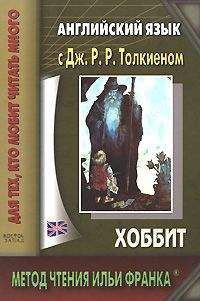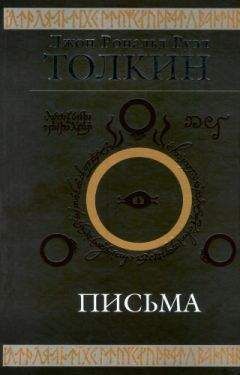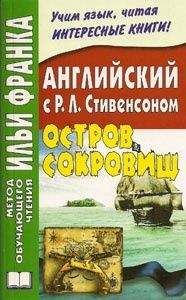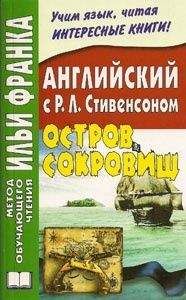And Balin and Dwalin (и Балина и Двалина)
down into the valley (сюда, в долину) in June (в июне) ha (ха)! ha (ха)!
O! Will you be staying (о, останетесь ли вы),
Or will you be flying (или вы умчитесь: «улетите»)?
Your ponies are straying (ваши пони сбились с пути)!
The daylight is dying (и свет дневной угасает; to die — умирать, dying — умирание)!
To fly would be folly (умчаться — будет глупо),
To stay would be jolly (остаться — будет весело)
And listen and hark (и слушать и прислушиваться)
Till the end of the dark (до конца темноты)
to our tune (к нашей мелодии) ha (ха)! ha (ха)!
burning [ˈbǝ: nɪŋ] laughter [ˈlɑ: ftǝ] shoeing [ˈʃu: ɪŋ] faggot [ˈfæɡǝt] bannock
[ˈbænǝk] dying [ˈdaɪɪŋ]
“Hmmm! it smells like elves!” thought Bilbo, and he looked up at the stars. They were burning bright and blue. Just then there came a burst of song like laughter in the trees:
O! What are you doing,
And where are you going?
Your ponies need shoeing!
The river is flowing!
O! tra-la-la-lally
here down in the valley!
O! What are you seeking,
And where are you making?
The faggots are reeking,
The bannocks are baking!
O! tril-lil-lil-lolly
the valley is jolly,
ha! ha!
O! Where are you going
With beards all a-wagging?
No knowing, no knowing
What brings Mister Baggins,
And Balin and Dwalin down
into the valley in June
ha! ha!
O! Will you be staying,
Or will you be flying?
Your ponies are straying!
The daylight is dying!
To fly would be folly,
To stay would be jolly
And listen and hark
Till the end of the dark
to our tune ha! ha!
So they laughed and sang in the trees (так кто-то: «они» смеялся и пел в деревьях); and pretty fair nonsense (и довольно порядочную чепуху /несли они/) I daresay (как я полагаю) you think it (вы думаете /об этом/). Not that they would care (не то чтобы им уж было это так важно; to care — заботиться, беспокоиться) they would only laugh all the more (они бы только стали смеяться еще больше) if you told them so (если бы вы сказали им так). They were elves of course (они были эльфами, конечно же). Soon Bilbo caught glimpses of them (вскоре Бильбо мельком увидел их; glimpse — проблеск) as the darkness deepened (пока темнота усиливалась; to deepen — углубляться, делаться глубже; deep — глубокий). He loved elves (ему нравились эльфы), though he seldom met them (хотя он редко встречал их; to meet); but he was a little frightened of them too (но он так же и немного побаивался их). Dwarves don’t get on well with them (гномы не очень-то хорошо ладят с ними). Even decent enough dwarves (даже достаточно порядочные гномы) like Thorin and his friends (как Торин и его друзья) think them foolish (думают, что они глупые) (which is a very foolish thing to think (что очень глупо — думать так)), or get annoyed with them (или раздражаются на них). For some elves tease them (из-за того, что некоторые эльфы дразнят их) and laugh at them (и смеются над ними), and most of all at their beards (и больше всего над их бородами).
“Well, well (ну, вот те и на)!” said a voice (сказал какой-то голос). “Just look (только взгляните)! Bilbo the hobbit on a pony, my dear (хоббит Бильбо верхом на пони, бог ты мой)! Isn’t it delicious (разве это не восхитительно)!”
“Most astonishing wonderful (чрезвычайно изумительно-удивительно)!”
nonsense [ˈnɔns (ǝ) ns] daresay [deǝˈseɪ] delicious [dɪˈlɪʃǝs]
So they laughed and sang in the trees; and pretty fair nonsense I daresay you think it. Not that they would care they would only laugh all the more if you told them so. They were elves of course. Soon Bilbo caught glimpses of them as the darkness deepened. He loved elves, though he seldom met them; but he was a little frightened of them too. Dwarves don’t get on well with them. Even decent enough dwarves like Thorin and his friends think them foolish (which is a very foolish thing to think), or get annoyed with them. For some elves tease them and laugh at them, and most of all at their beards.
“Well, well!” said a voice. “Just look! Bilbo the hobbit on a pony, my dear! Isn’t it delicious!”
“Most astonishing wonderful!”
Then off they went into another song (и затем они затянули другую песню; to go (went, gone) off — зд. разразиться) as ridiculous as the one (такую же смешную = нелепую, как и та) I have written down (которую я записал) in full (полностью). At last one, a tall young fellow (наконец один /из них/, высокий молодой паренек), came out from the trees and bowed to Gandalf and to Thorin (вышел из-за деревьев и поклонился Гэндальфу и Торину).
“Welcome to the valley (добро пожаловать в долину)!” he said.
“Thank you (благодарим)!” said Thorin a bit gruffly (сказал Торин чуть грубовато); but Gandalf was already off his horse (но Гэндальф уже спустился с лошади) and among the elves (и был среди эльфов), talking merrily with them (весело разговаривая с ними).
“You are a little out of your way (вы немного сбились с пути), ” said the elf (сказал эльф): “that is (это так), if you are making for the only path (если вы направляетесь к единственной тропе) across the water (через реку: «воду») and to the house beyond (и к дому за ней). We will set you right (мы направим вас по правильному /пути/), but you had best get on foot (но вам лучше всего спешиться: «встать на ноги»), until you are over the bridge (до тех пор, пока вы не пересечете мост; over — зд. указывает на местоположение по другую сторону чего-либо). Are you going to stay a bit (вы останетесь ненадолго) and sing with us (и попоете с нами), or will you go straight on (или вы сразу пойдете)? Supper is preparing over there (ужин готовится вон там), ” he said. “I can smell the wood-fires (я чувствую запах горящих дров) for the cooking (/что развели/ для приготовления пищи). ”
ridiculous [rɪˈdɪkjʋlǝs] gruffly [ˈɡrʌflɪ] merrily [ˈmerɪlɪ] straight [streɪt]
Then off they went into another song as ridiculous as the one I have written down in full. At last one, a tall young fellow, came out from the trees and bowed to Gandalf and to Thorin. “Welcome to the valley!” he said.
“Thank you!” said Thorin a bit gruffly; but Gandalf was already off his horse and among the elves, talking merrily with them.
“You are a little out of your way, ” said the elf: “that is, if you are making for the only path across the water and to the house beyond. We will set you right, but you had best get on foot, until you are over the bridge. Are you going to stay a bit and sing with us, or will you go straight on? Supper is preparing over there, ” he said. “I can smell the wood-fires for the cooking. ”
Tired as he was (хотя и уставший), Bilbo would have liked to stay awhile (Бильбо бы с удовольствием остался на какое-то время). Elfish singing (пение эльфов) is not a thing to miss (это то, что не хочется пропустить), in June under the stars (в июне, под звездами), not if you care for such things (нельзя /пропустить/, если вы любите такие вещи).
Also he would have liked (так же, ему бы хотелось) to have a few private words (перекинуться несколькими словами наедине; private — частный, личный) with these people (с этими людьми) that seemed to know his name and all about him (которые, как казалось знают его имя и все о нем), although he had never seen them before (хотя он никогда их раньше не видел). He thought (он подумал) their opinion of his adventure (что их мнение о его приключениях) might be interesting (могло бы быть интересным). Elves know a lot (эльфы знают много чего) and are wondrous folk for news (и они невиданный народец, когда дело касается новостей), and know what is going on (и узнают, что происходит) among the peoples of the land (среди людей, живущих на земле), as quick as water flows (также быстро, как течет вода), or quicker (или быстрее). But the dwarves were all for supper (но гномы были все за ужин; to be for smth. — стоять или быть за что-либо) as soon as possible just then (как можно скорее, и именно тогда), and would not stay (и не хотели остаться). On they all went (они все двинулись дальше), leading their ponies (ведя своих пони), till they were brought to a good path (пока их не привели к хорошей тропинке) and so at last (и также, наконец) to the very brink of the river (к самому берегу реки). It was flowing fast and noisily (она текла быстро и шумно), as mountain-streams do on a summer evening (как обычно и текут: «делают» горные речки летним вечером), when sun has been all day on the snow (когда солнце светило целый день на снег) far up above (высоко-высоко на вершинах). There was only a narrow bridge of stone (был там только маленький каменный мост) without a parapet (без перил), as narrow as a pony could well walk on (такой узкий, по которому пони смогут хорошо пройти); and over that they had to go (и им пришлось по нему пройти), slow and careful (медленно и осторожно), one by one (один за одним), each leading his pony by the bridle (и каждый вел своего пони под уздцы). The elves had brought bright lanterns to the shore (и эльфы принесли яркие фонари к берегу), and they sang a merry song (и они пели какую-то веселую песенку) as the party went across (пока вся группа переправлялась на ту сторону).





